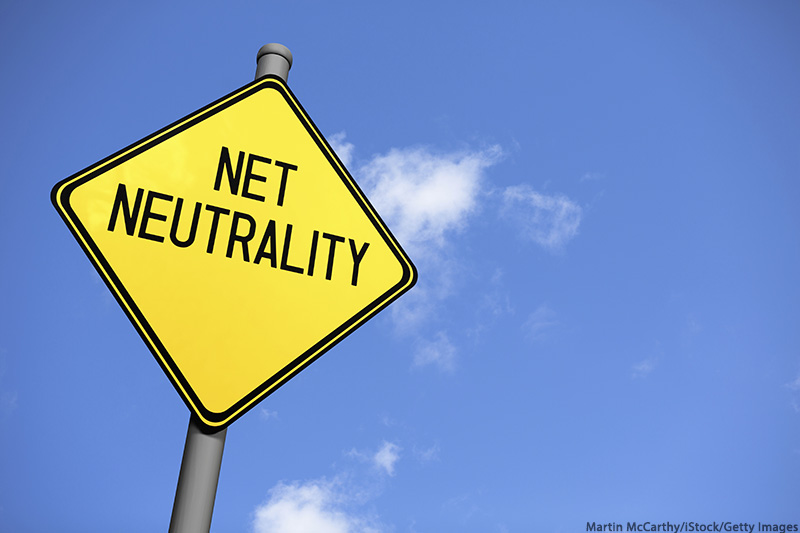
The Not-So-Neutral Net?
When you go online, do you expect to be able to access any Web site you choose? Do you want to view or stream whatever content you like, regardless of your internet service provider (ISP)? Do you think your ISP should charge you the same amount every month, regardless of which sites you visit?
If you answered “yes” to any of these questions, then you believe in net neutrality. And as of December 14, it may be a thing of the past.
So What Exactly is Net Neutrality?
In short, net neutrality is the right to free communication online. It is the principle that all internet service providers must treat all internet data the same. It means that an ISP cannot slow down, block, or charge more for some Web sites and content than for others.
Here are some examples:
- Imagine that you want to check in on Facebook, but your ISP won’t give you access to it unless you pay extra for their new shared data plan.
- Or what if you want to binge-watch your favorite streaming series, but it has been slowed down to the point of unwatchability by your ISP because they don’t want you viewing their competitors’ content.
To put it another way: imagine your phone company deciding who you can and can’t call, or charging you more for phone calls to some people than to others. This is the kind of discrimination that net neutrality laws aim to prevent.
Other issues to consider–taking away net neutrality would allow ISPs to block any political content it disagrees with–which is a form of censorship. And small businesses and startups will have a much harder time gaining a foothold in the market if they don’t have the money to spend so that they can be in a hypothetical internet “fast lane.”
Why is it Under Attack?
Ajit Pai is the chairman of the Federal Communications Commission (or FCC). A former Verizon lawyer, and a Trump-appointed Republican, Pai believes that net neutrality laws unnecessarily and harmfully limit telecom companies by preventing them from pursuing new business models. Eliminating unnecessary regulations on telecom companies, according to Pai, will help the internet grow and thrive.
RELATED LINK: Read FCC Chairman Pai’s remarks on restoring Internet Freedom.
What is the Public’s Reaction?
In the week that’s passed since the FCC revealed its plan to eliminate net neutrality, more than 200,000 people have made phone calls to Congress, and at least a half a million comments have been left on the FCC’s Web site.
Nevertheless, the December 14 vote will go ahead as planned, and it’s expected that the proposal to end net neutrality will pass. (Out of the five FCC commissioners, the three Republicans have already said that they will vote in favor of removing net neutrality.) Meanwhile, public interest groups have begun preparing to file lawsuits against the FCC as soon as the vote passes.


